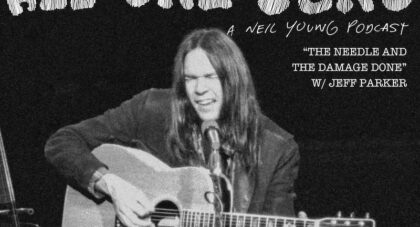I Need a New War brings to end the trilogy Craig Finn started in 2015 with Faith in the Future and continued with 2017's We All Want the Same Things, a triptych sidestepping the hard rock glory of Finn's band the Hold Steady in favor of quieter, more introspective sounds and stories. Finn's always written about hard luck characters, but increasingly, his lens centers more on the aftermath of the action than the action itself . . .
Only the good shit. Aquarium Drunkard is powered by its patrons. Keep the servers humming and help us continue doing it by pledging your support.
To continue reading, become a member or log in.


